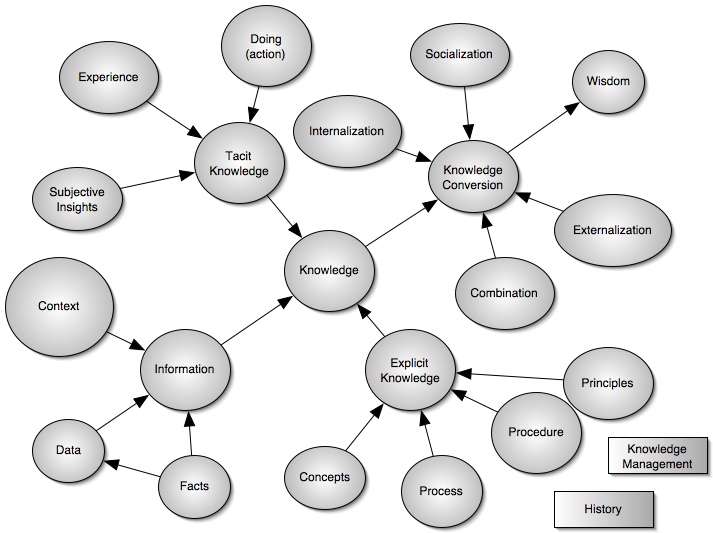Fritz Machlup - Knowledge Industry - 1962
Fritz Machlup (1902-1983) worked in two major areas of economics: industrial organization, with particular emphasis on the production and distribution of knowledge; and international monetary economics.
Information theorists often use Machlup's 1962 book, The Production and Distribution of Knowledge in the United States, in which he wrote that the knowledge industry represents 29% of the US gross national product as the beginning of the Information age.
Machlup defines knowledge as a commodity and attempts to measure the magnitude of the production and distribution of this commodity within a modern economy. Thus, he recognized and treated knowledge as an information source, however, his figures included the distribution of typewriters and stationery as part of this knowledge Industry.
Machlup divided information use into three categories: instrumental, intellectual, and pastime knowledge.
These categories suggest that there is more to information use than only that which is instrumental in nature. They suggest that there is a broad range of uses each of which is essentially important to human information movement and each of which, therefore, has a legitimate claim to the attention of our field - Francis L. Miksa.
In addition, Machlup distinguishes five types of knowledge:
- practical knowledge
- intellectual knowledge, that is, general culture and the satisfying of intellectual curiosity
- pastime knowledge, that is, knowledge satisfying non-intellectual curiosity or the desire for light entertainment and emotional stimulation
- spiritual or religious knowledge
- unwanted knowledge, accidentally acquired and aimlessly retained
Next Step
Return to the Information and Knowledge page


